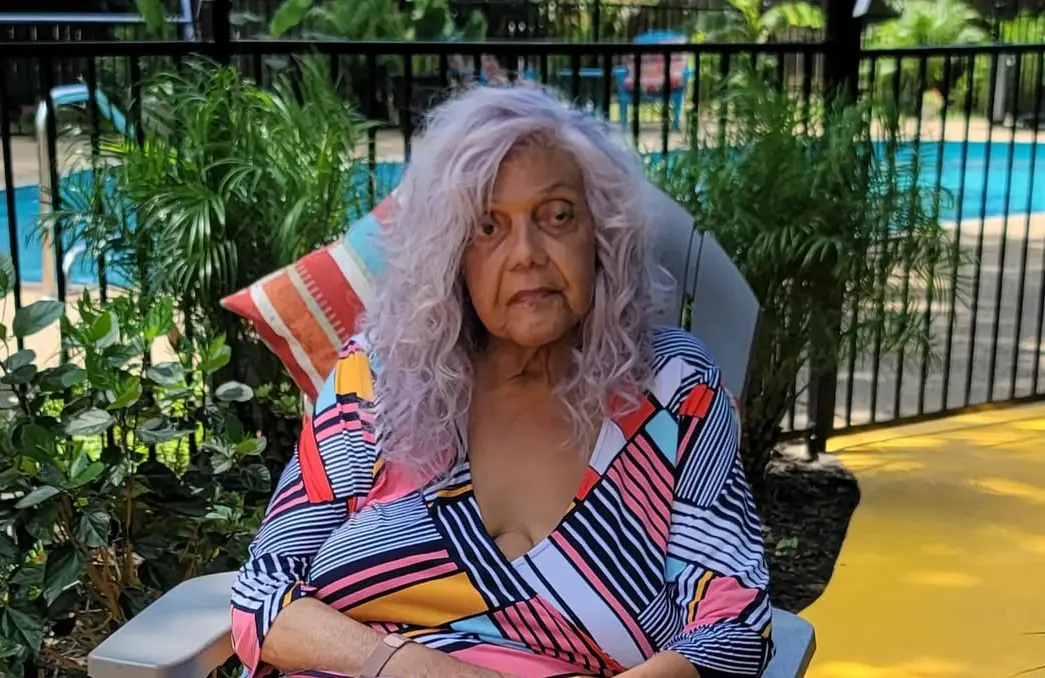Who was Miss Major Griffin Gracy? Transgender activist dies at 78
-
 Miss Major Griffin-Gracy (Image via Instagram/@missmajor1)
Miss Major Griffin-Gracy (Image via Instagram/@missmajor1)Miss Major Griffin-Gracy, a trailblazing transgender activist and cherished member of the LGBTQ+ community, died Monday (October 13) at 78. Her death was announced by the House of GG, Griffin-Gracy Retreat and Educational Center, which she founded in Little Rock, Arkansas.
The center noted in a statement that she died "in the comfort of her home and surrounded by loved ones,” and thanked her for her lifelong devotion to the liberation, safety, and dignity of Trans and other marginalized communities.
Miss Major, known affectionately as Mama Major, was born in Chicago in October 1946. Being assigned male at birth, she supposedly knew she was female since she was a child.
Miss Major Griffin-Gracy passed away today at age 78. She was a veteran of the Stonewall rebellion and a long time organizer for the safety and dignity of trans people, sex workers, and the incarcerated. She came from the same generation and milieu as Marsha and Sylvia. pic.twitter.com/QkNGLCrUxO
— Gillian Branstetter (@GBBranstetter) October 14, 2025During a time when gender variations were rare, she faced rejection and discrimination, and was even expelled from multiple colleges, simply for identifying as her true gender. In 1962 she relocated to New York City where she performed in drag shows and found her place in the LGBTQ+ community.
Miss Major’s activism first began around the time of the Stonewall uprising of 1969, which is often called the start of the LGBTQ+ rights movement. She was there when the riot occurred and later stated that the protest came from frustration following years of police harassment.
The Stonewall rebellion is often credited as being the start of gay liberation in the US, but Miss Major would often remind folks that transgender women of color, sex workers, and drag performers were already in the trenches fighting for equality long before Stonewall.
More about Miss Major’s activism and her time in prison
Her activism deepened after her imprisonment in the '70s. While incarcerated in men's facilities Miss Major was subjected to abuses and dehumanizing conditions; these experiences became the basis for her activism for incarcerated trans people.
She also met Frank "Big Black" Smith who was one of the leaders of the Attica prison uprising, exposing her to a larger political vision and a commitment to justice.
After she was released, Miss Major dedicated herself to enhancing trans people's lives, particularly those who were poor, incarcerated, or had HIV/AIDS. In the 1980s, she helped care for people with HIV in New York and went on to set up Angels of Care for home health services for patients infected with HIV/AIDS in San Diego.
After she lost her partner Joe-Bob Michael to AIDS, she continued her outreach by moving to San Francisco, where she became a health educator and founded GiGi's Place, a drop-in center for trans people.
Miss Major continued as the executive director of Transgender Gender-Variant and Intersex Justice Project (TGIJP) fighting for the rights of trans people who are locked up. In 2019, she began the House of GG in Arkansas as a way for Black transgender girls to have a place to rest, heal, and build community together.
Miss Major leaves behind her sons, her partner Beck Witt, and many students who considered her a mother. Her existence was seen as an example of courage and compassion, a reminder of the power of visibility and the struggle for trans rights.
TOPICS: Human Interest
- Is the Giant Eclipse Octopus found in the Gulf of Mexico real or fake? Viral footage explored
- What qualities is Bebe Rexha looking for in a partner? Singer asks fans to find her a ‘baby daddy’
- Christmas 2025 Nordstrom sale: 7 best holiday gifts to give your loved ones
- What happened at Hazie's, San Francisco? Couple goes viral for irrate behaviour that leads them to being kicked out of the restro